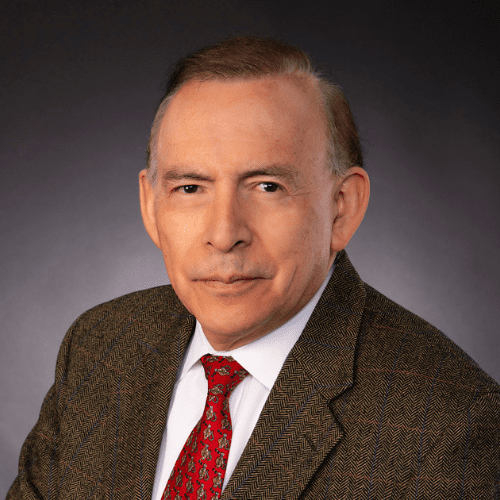For many years, a portion of the world public has sought to wall itself off from people abroad by hiding behind national borders.
Nationalist Isolation in the United States and Elsewhere
In the United States, this tendency became an important element in American politics. During the 1920s and 1930s, the Republican Party embraced isolationism and spurned the new League of Nations. Indeed, for a time, President Warren G. Harding’s State Department refused to even acknowledge correspondence from the League. Republican leaders also played a key role in the America First Committee, founded in 1940 to oppose U.S. aid to Britain in its lonely resistance to the fascist military onslaught. Admittedly, after the Japanese attack on Pearl Harbor in December 1941, the GOP shifted course, backing U.S. participation in World War II and the development of the United Nations. In the postwar years, however, this internationalist approach gradually dissipated, especially as the Republican Party moved rightward. Increasingly, the GOP portrayed international treaties and foreigners as threats to “the American way of life.”
The descent into xenophobia was particularly evident during the presidency of Donald Trump. Proclaiming an “America First” policy and ridiculing “global citizenship,” he assailed the United Nations, withdrew the United States from the World Health Organization, championed the building of border walls, banned travel to the United States from select countries, and pulled the U.S. government out of international climate and arms control agreements. “You know what I am?” Trump remarked to a campaign crowd in October 2018. “I’m a nationalist. OK? I’m a nationalist.”
Even after his 2020 election defeat, Trump has continued to promote an “America First” policy, while other leading Republicans, ranging from Florida Governor Ron DeSantis to House Speaker Kevin McCarthy, have done much the same. MAGA extremists like Tucker Carson and Marjorie Taylor Greene increasingly set a strident nationalist tone for the current GOP. Nor are they out of line with most of their voters, According to polls, most Republicans oppose their government’s taking international action against climate change, aiding refugees fleeing violence, defending human rights in other countries, and strengthening the United Nations.
Of course, this kind of narrow nationalism has been and remains common in many lands, where notions of national superiority have facilitated imperialism, militarism, disdain for foreigners, and ignorance of the world. Rightwing political movements seem particularly prone to nationalist hysteria; witness, for example, the chauvinism displayed by fascist parties of the past and present. But flag-waving glorification of the nation has certainly not been limited to the Right or, for that matter, to any country.
Problems with the Nationalist Approach
Despite their ubiquity, however, nationalist disrespect and contempt for people of other lands run counter to most of the world’s great ethical and religious teachings, which call for fairness, charity, and even love for others. The oft-cited Golden Rule―“Do unto others as you would have them do unto you”―is not limited by national boundaries. Similarly, “welcoming the stranger,” a direct challenge to xenophobia, has deep resonance in traditional moral preachments. In fact, xenophobia is a form of nationally-based selfishness that undermines the fundamentals of ethical behavior.
Moreover, a nationalist approach is very unrealistic. After all, in today’s world, no single country or group of countries can cope effectively with the severe problems that confront us. These problems include war (and perhaps nuclear war), climate catastrophe, disease pandemics, resource scarcity, widespread poverty, and mass migration. Given advances in modern science and technology, solutions to these problems are feasible. Even so, as these are global problems, it is hard to see how they can be addressed successfully without implementing global solutions. And these solutions require international cooperation.
The Rise of Global Citizenship
Fortunately, as ethical obligations have been reinforced by global realities, many international voluntary organizations have emerged to deal with such issues as war (the International Peace Bureau and International Physicians for the Prevention of Nuclear War), environmental defense (Greenpeace, 350.org, and the World Wildlife Fund), and preservation of human life and health (the International Red Cross and Red Crescent Movement and Doctors without Borders). Other concerns that have led to the development of international voluntary organizations include aid to refugees (the International Rescue Committee), the alleviation of poverty (Oxfam International), and the defense of workers’ rights (the International Trade Union Confederation).
In addition, international governmental institutions, working to address these and other challenges, have developed over the past century. The best known of them is probably the United Nations. But others include the International Court of Justice and the International Criminal Court. Working together, they have helped fashion international law, including the Geneva Conventions and the Universal Declaration of Human Rights.
In an effort to promote further progress along these lines, some organizations, such as the World Federalist Movement, call for strengthening international cooperation by building a united federation of nations. And there is much to be said for this approach. After all, these international organizations, institutions, and agreements point the way forward to a global civilization where nations are not invaded and relentlessly bombed to satisfy the imperial ambitions of an arrogant ruler, where people do not go hungry when there is food enough for all, and where people’s homes and lands are no longer overwhelmed by environmental disasters to safeguard the profits of giant fossil fuel corporations.
As the development of international social movements and institutions has shown us, people around the globe who seek to move beyond the artificial boundaries that have separated them can work together to address their common problems by building an ever more united world. Having wallowed in futile and self-defeating national isolation for centuries, the people of the world can take effective action to transcend their divided past in the interest of a brighter future . . . for all!
Lawrence S. Wittner is Professor of History Emeritus at SUNY/Albany, the author of Confronting the Bomb (Stanford University Press) and other books on international issues, and a board member of the Citizens for Global Solutions Education Fund.
Disclaimer: The views expressed in this blog post do not necessarily reflect the official policy of Citizens for Global Solutions.



























